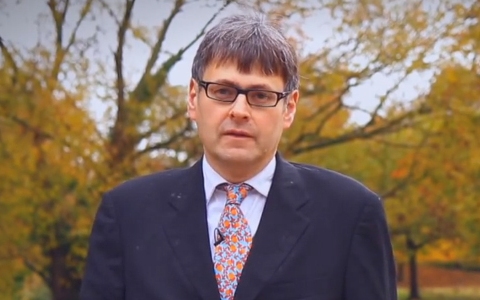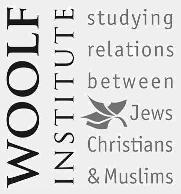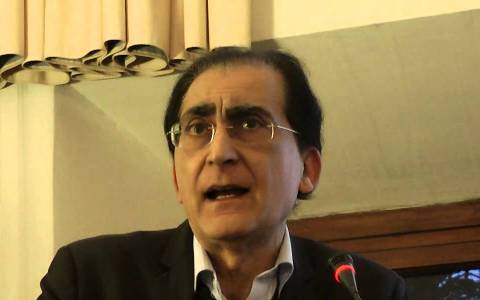Secular Britain is ‘doing God’: official
by - 9th October 2014

A JEWISH-INITIATED exercise examining the state of religion and belief in Britain could result in major changes both in religious education – and in the media.
 The élite Cambridge-based Woolf Institute, founded by interfaith academic Edward Kessler - described on his website as a 'prolific' interfaith academic - in honour of top law lord, Lord Woolf, has set up a national consultation to take evidence from across the country throughout October to generate debate about emerging religious ‘trends and identities’.
The élite Cambridge-based Woolf Institute, founded by interfaith academic Edward Kessler - described on his website as a 'prolific' interfaith academic - in honour of top law lord, Lord Woolf, has set up a national consultation to take evidence from across the country throughout October to generate debate about emerging religious ‘trends and identities’.
Hosted by the new Commission on Religion and Belief in British Public Life which was set up by the Woolf Institute last year, the consultation is mobilising academic and other agencies to draw thinkers into a national gear-change on religious identity and culture.
‘Amongst all citizens there seems to be an increasing need for "religious literacy" - knowledge and understanding of Britain's diversity of religion and belief’, it acknowledges on websites hosted by partner bodies.

Professor Tariq Modood, founder and director of one such body, Public Spirit, based at the University of Bristol where he is Director of the Research Centre for the Study of Ethnicity and Citizenship, is one of the 20 Commissioners and a member of the Commission's steering group.
He said: 'Britain has become a multi-faith society and this raises questions about the relation between this new diversity and our sense of common nationality as well as the place of religion and belief in public life. The commission is well placed to make a contribution to debate on these matters.'
Questions will address religion and belief in syllabuses, selection for faith schools and ‘general principles’ about religion and belief that should guide the teaching of history and citizenship education in schools, literature and other arts.
Principles
For the media there are questions relating to religious coverage, and what principles should guide the education of journalists and media producers.
Dr Jenny Taylor, Founder and Director of Lapido Media, whose submission to the Commission is one of six to be published on the Public Spirit website, said she welcomed the Commission’s focus on the media and religious literacy.
‘I hope the Commission is not just digging up the roots of the tree to see if it is still alive. I don’t believe that identity is formed by commissions of the great and the good deciding what it should be, however consultative it may be.
‘However, there is no doubt a deathless logjam in the national debate about what matters to us as a nation, with a lot of things one simply cannot say or even think, and if this exercise gives it a hefty shove, I’m for it.
‘It’s the quiet voices of dissent that need to be heard – without prejudice. I hope they will be.’
Impeccably balanced
Commission figureheads are impeccably balanced ethnically and religiously, although the Institute is at pains to explain that all have been chosen as ‘individuals’ not because they represent any religious body.
Lord Rowan Williams, former Archbishop of Canterbury and now Master of Magdalene College in Cambridge, joins Sir Iqbal Sacranie of the controversial Muslim Council of Britain as Patrons, with Lord Bhikhu Parekh who described Britain as ‘institutionally racist’. Lord Woolf himself, who expressed concern - without irony - about the increasing trend to curb the rights of Christians to demonstrate their faith at work during the decade he had presided over the English legal system, is also a Patron.
There are dissenting voices about the religious make-up of the Commission. ‘The issue is whether this review can reach a conclusion that reflects the priorities of the general public, rather than just people of faith’ says researcher David Voas, Professor of Population Studies at the University of Essex.
Appropriate
Criticizing the ‘religious’ make-up of the Commission he writes: ‘It is completely appropriate for people whose business is faith to prepare a report on the role of religion and belief in British public life, just as it is appropriate for people who work in the pub trade to write about the role of alcohol in British life.
‘What they cannot expect, though, is for their findings to be treated as anything other than the product of a special interest group.
‘The commission is condemned from its conception to producing a minority report.’
Topics for consultation come under six headings: Law, Social Change, Media, Education and Training, Social Action, Dialogue and Engagement.
The Commission is funded by the Joseph Rowntree Foundation, the Open Society Foundation and the Woolf Institute itself.
It will tour the country taking soundings from, among others, local newspaper editors, councillors with lead responsibility for social cohesion, and youth leaders, and intends to publish its report next summer.
Read Dr Jenny Taylor’s blog on the Commission here.
